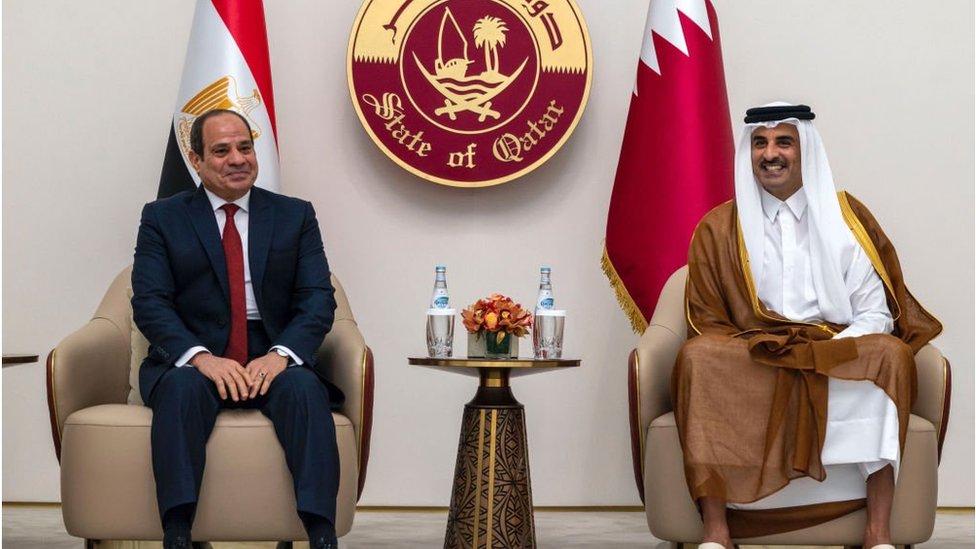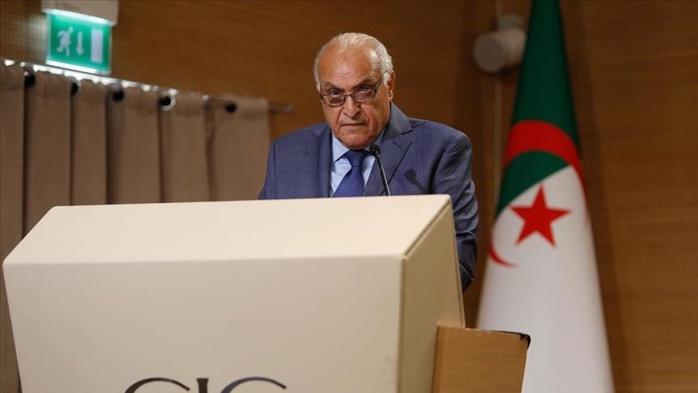The fallout from the so-called “Qatargate” scandal continues to shake Israeli political and media circles following revelations that two close associates of Israeli Prime Minister Benjamin Netanyahu received payments from Qatar to promote its role as a key mediator in the Gaza war while downplaying Egypt’s involvement in the process.
According to CNN, Israeli authorities have arrested Netanyahu’s media advisor, Yonatan Urich, and former aide Eli Feldstein as part of an investigation into allegations that they accepted bribes from Qatar to influence the narrative on its role in mediating the Gaza war. A judge has ordered their detention pending further investigation.
CNN also reported that the judge, who ordered the suspects to remain in custody for three days, stated that a review of classified materials indicated a suspicion that a U.S.-based company, Third Circle Inc., which has links to Qatar, had contacted one of the suspects to spread negative messages about Egypt and downplay its role in mediation efforts aimed at securing the release of all hostages held since October 7 and achieving a permanent ceasefire.
According to the same source, investigations reveal that the suspects worked to shape media coverage in a way that served Qatar’s interests by pushing journalists to write favorable articles about Doha while diminishing Cairo’s role. These efforts also included arranging visits for Israeli journalists to Qatar to enhance its image, among them Jerusalem Post editor-in-chief Zvika Klein, who was also interrogated.
France 24 reported that this is not the first time allegations have surfaced about ties between Qatar and Israeli officials, despite the absence of direct diplomatic relations. Israeli media previously revealed that Qatar had contracted a consulting firm named Perception, in which one of the suspects, Yonatan Urich, is a partner, to improve Qatar’s image ahead of the 2022 FIFA World Cup.
The same source also noted that last month, an investigation by Israel’s Channel 12 revealed that Filtstein (the second suspect) had been receiving a salary from Jay Footlik, the head of Third Circle Inc., a U.S. lobbying firm serving Qatar’s interests.
Despite Netanyahu’s attempts to downplay the ongoing investigations, dismissing them as a “political witch hunt,” international media reports suggest that the case is becoming increasingly complex, with more suspects emerging and growing evidence linking the accused advisors to Qatar. The Israeli opposition has also accused Netanyahu of “abuse of power” by allowing his closest advisors to receive foreign payments to influence Israeli policy.
This scandal comes at a time when Cairo is playing a central role in negotiations related to the Gaza war, maintaining direct communication channels with Israel, Hamas, and the United States, alongside Qatar’s involvement in the matter. However, these latest leaks suggesting Doha’s attempts to undermine Egypt’s role could have negative repercussions on bilateral relations between the two countries.
Egyptian-Qatari relations have historically been marked by recurring tensions, most notably following the ousting of former President Mohamed Morsi in 2013, when Cairo accused Doha of supporting the Muslim Brotherhood and destabilizing Egypt. The crisis further escalated in 2017 when Egypt joined Saudi Arabia, the UAE, and Bahrain in boycotting Qatar. However, relations gradually normalized following the Al-Ula Agreement in 2021.
In light of these developments, many media reports are now questioning whether “Qatargate” could reignite tensions between Cairo and Doha, particularly as Egypt remains wary of any moves that could challenge its regional influence and role in the Middle East.






